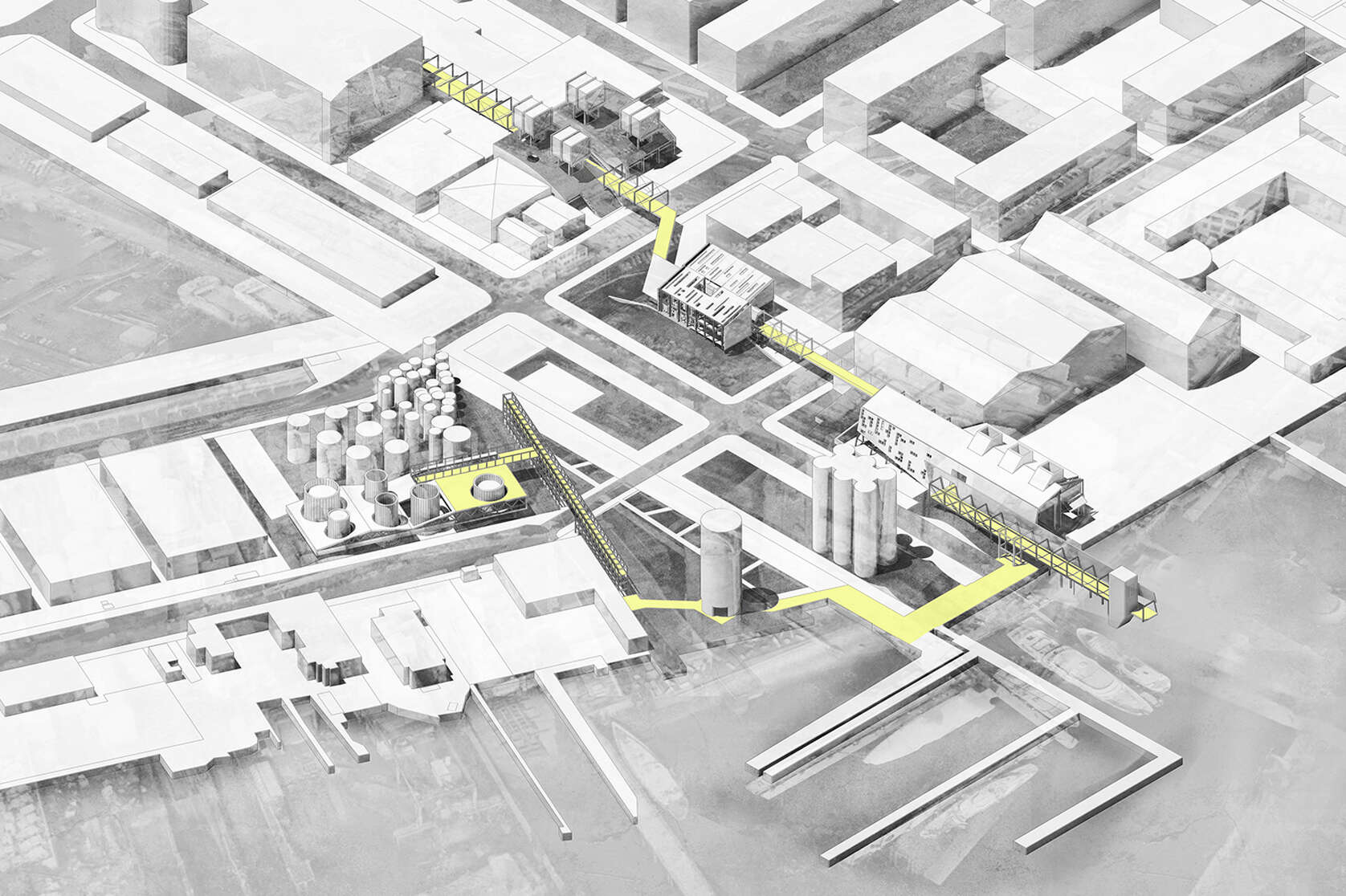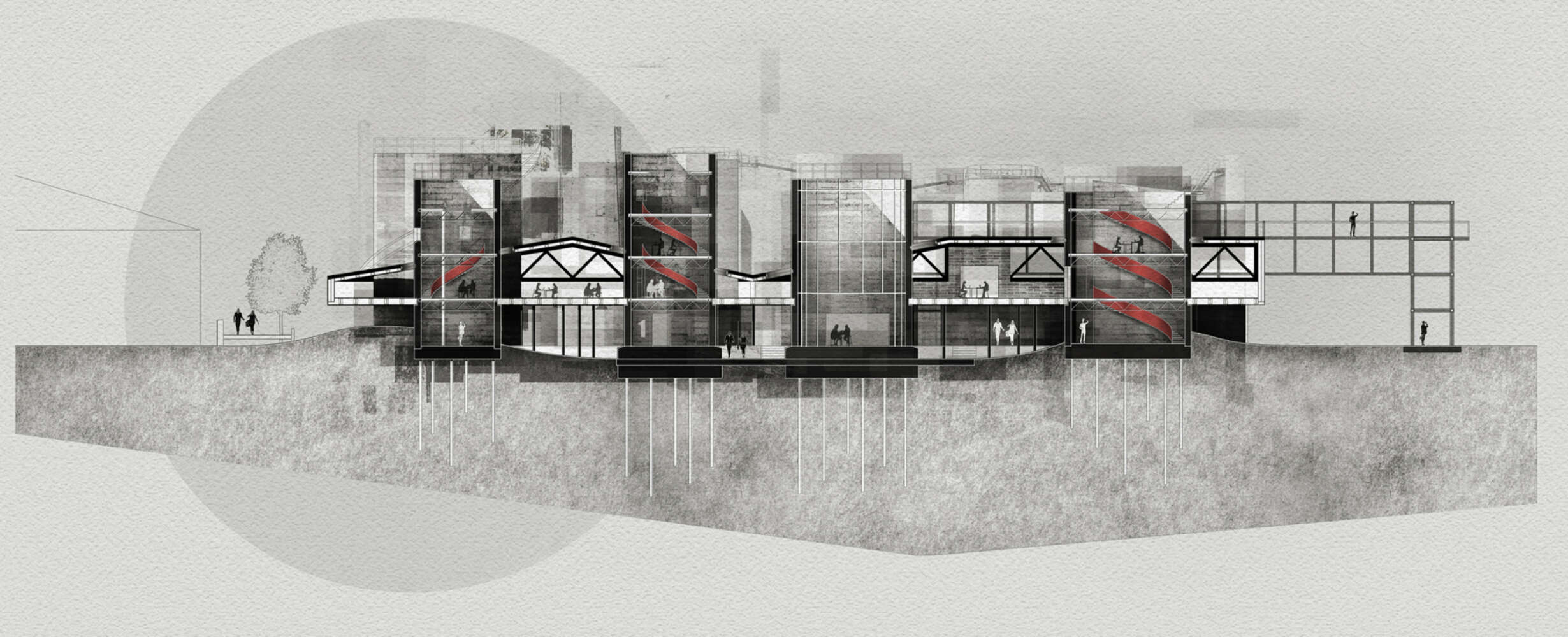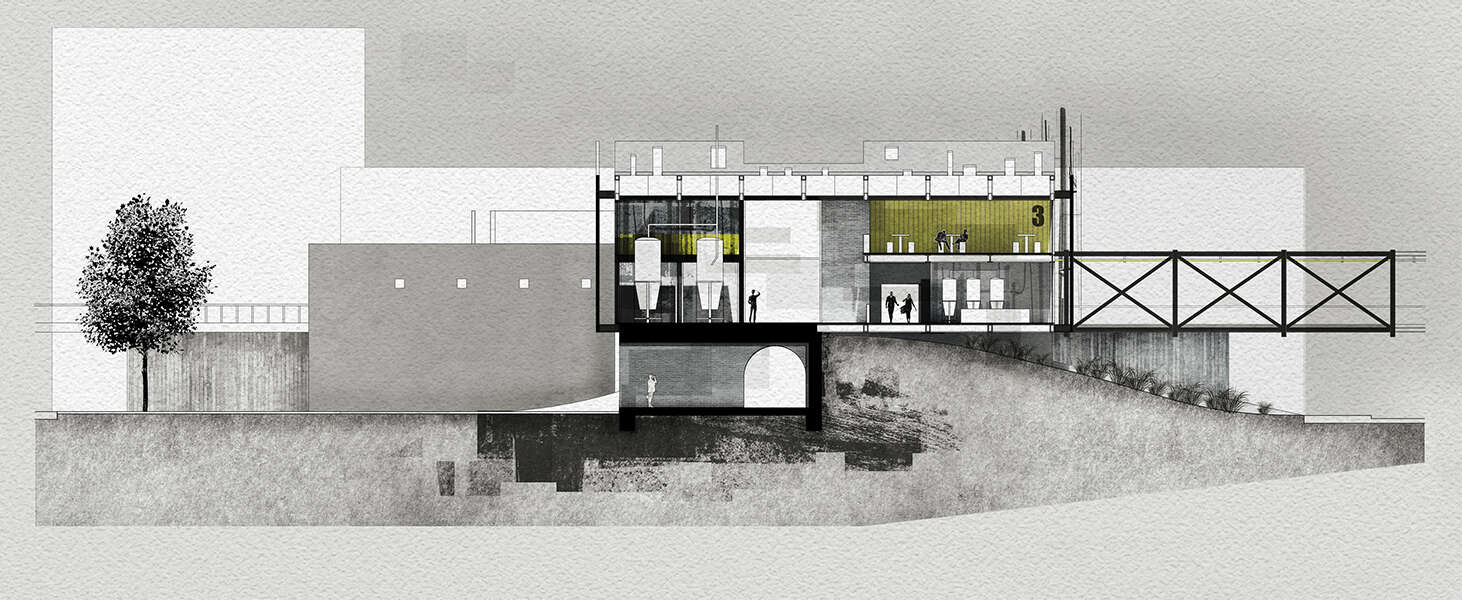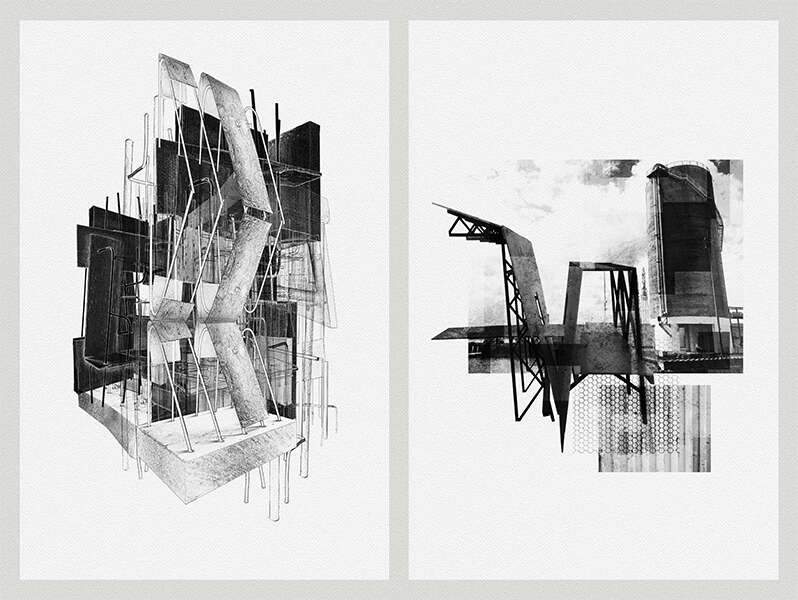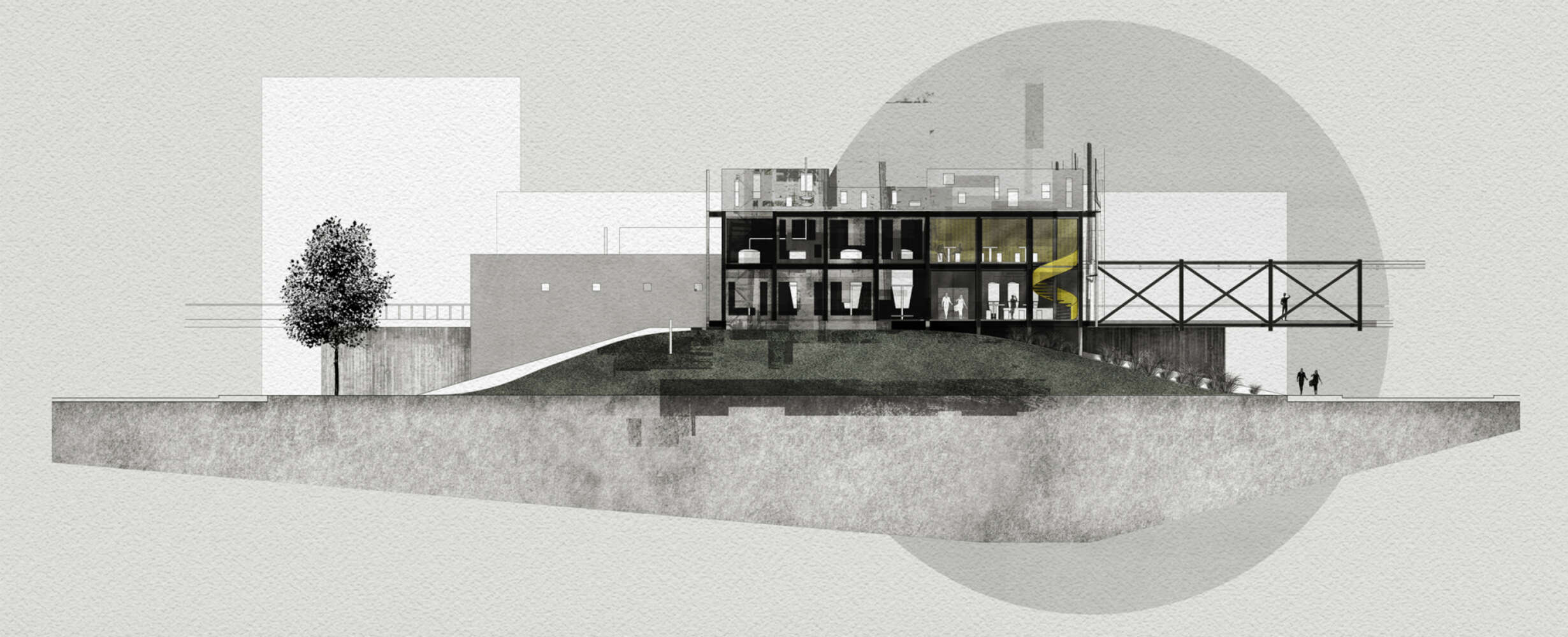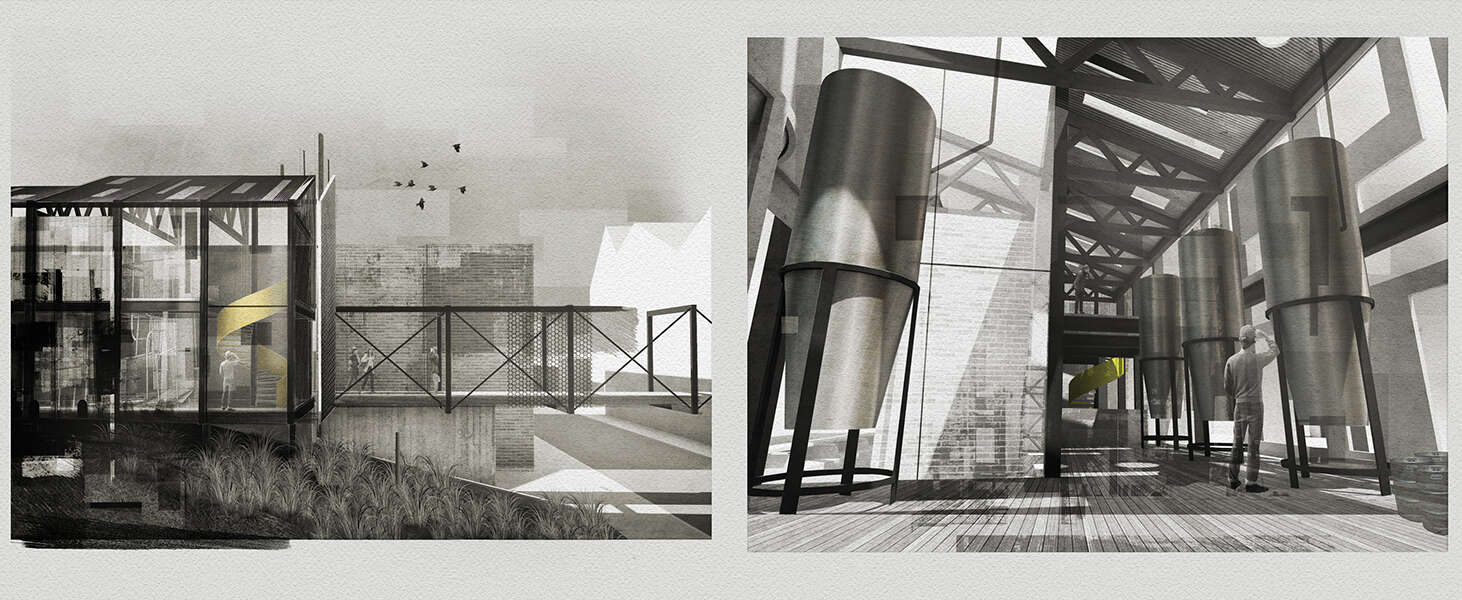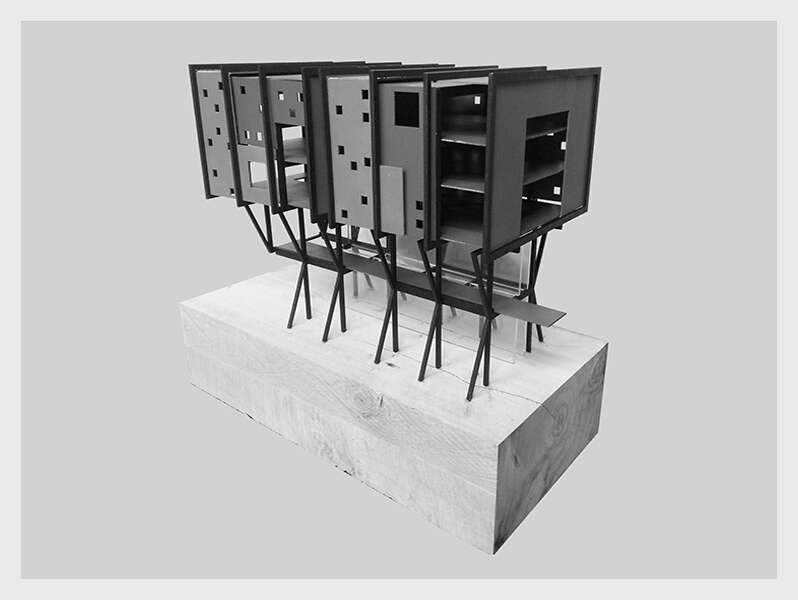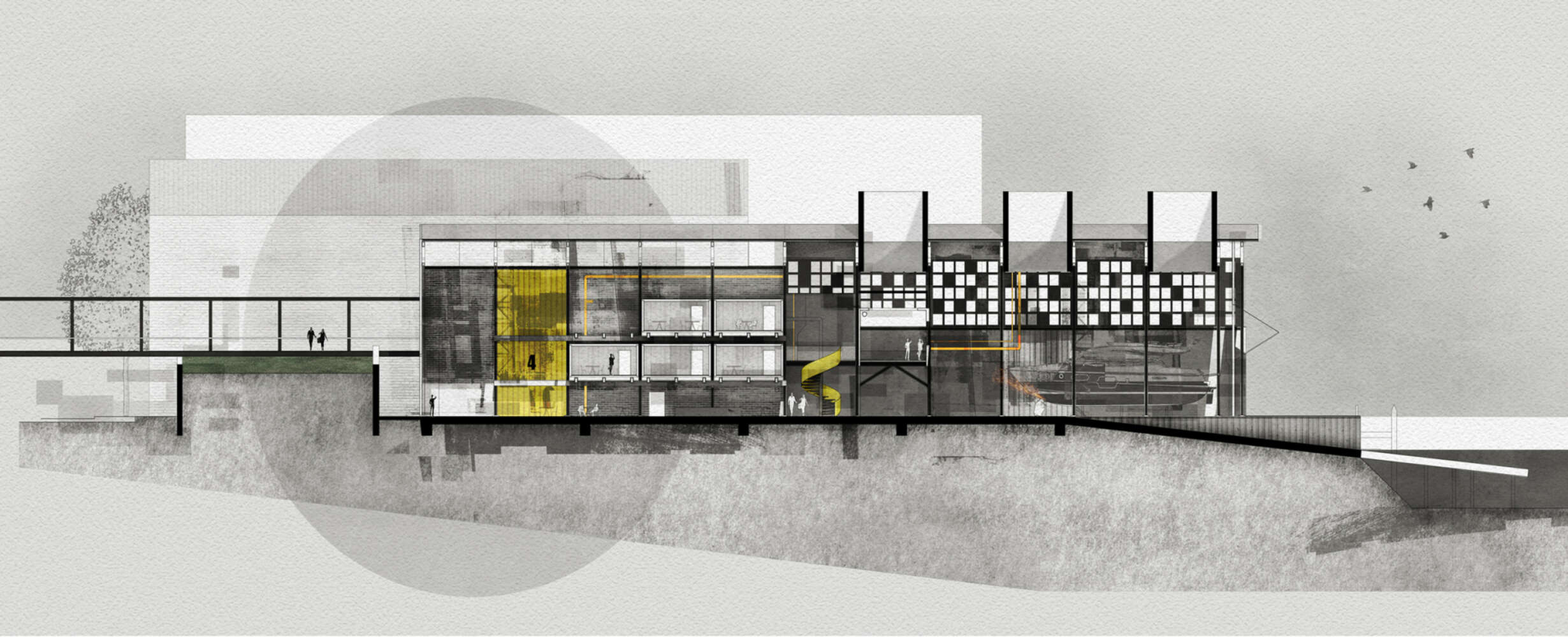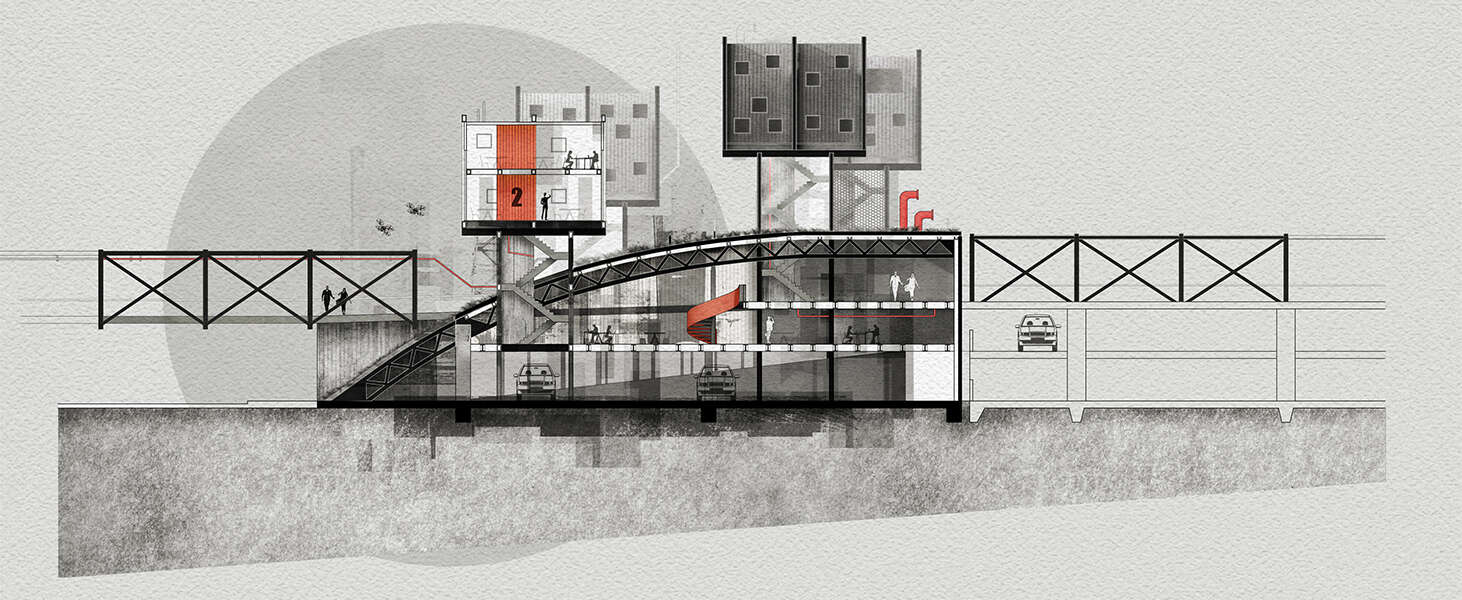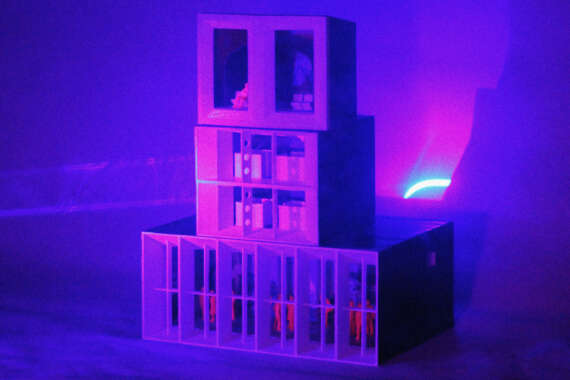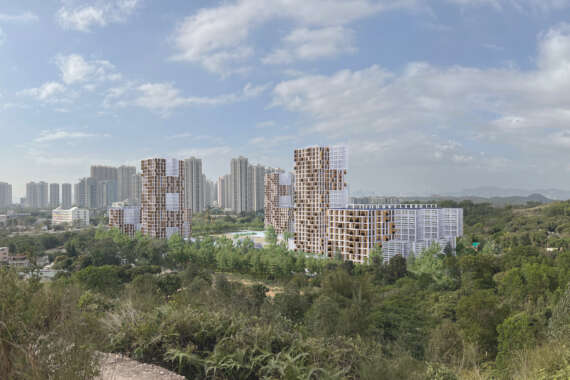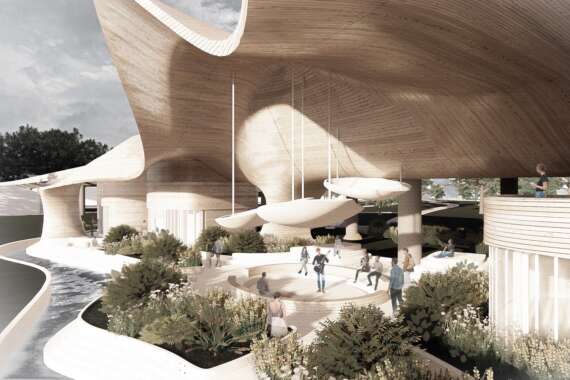The factory has been banished from the urban core; its negative perception has contributed to a disconnection between production and consumption. The proposed solution counters urban stratification and globalisation with tailored local manufacturing. The mixed-use proposal is generated from problems that occur in the current disposable and consumeristic society, and the need to counter those problems of waste through recycling and sustainable practices.
The reintroduction of small scale manufacturing is proposed as the fourth element of urbanism, working alongside perceived opposing typologies. Currently these typologies are broken up and separated around our cities and this thesis explores to what extent these programmes could coexist. The proposal’s site at Wynyard Quarter provides an alternative development of this former industrial area. Part of this urban unification is achieved through the inhabitation of industrial space with the promotion of an interactive industrial tourism.
The final proposal is the development of a factory microcosm containing four different factory programmes that inhabit both the decommissioned industrial remnants and the ongoing urban regeneration. Through this the dynamism of Wynyard Quarter is realised: a contrast between tradition and innovation. The architecture is generated through a process of superimposition that amalgamates the rich layers of atmosphere, tectonics and site. Facilitated by this process, an industrial architecture is explored that aims to remediate the perception and contaminated legacy of the factory. The design outcome fragments the urban grid and challenges the perception of what manufacturing means for the city.
